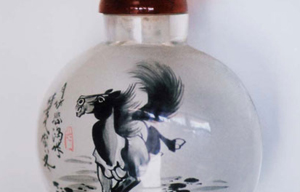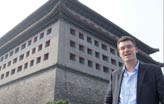Center
International M&A rulings set to exceed 200 this year
Updated: 2011-09-22 07:57
By Ding Qingfen (China Daily)
BEIJING - The transnational merger and acquisition (M&A) cases that China accepts and handles are expected to exceed 200 in 2011, rising from 117 in 2010, pointing to the appeal of the Chinese market to foreign investors and China's improving anti-monopoly laws.
Although many have said that China uses the anti-trust law as a cover for protectionism and the law poses hurdles for M&A deals, Shang Ming, director-general of the anti-monopoly bureau of the Ministry of Commerce, said China's procedures and practices in drafting and executing the anti-trust laws are "transparent and in line with international practice".
"China will further improve the transparency and efficiency of handling and reviewing M&A cases," Shang said at the two-day 2011 BRICS International Competition Conference, which opened in Beijing on Wednesday.
Between the implementation of the anti-monopoly law in 2008 and this past June, China accepted and handled 267 cases.
From January to August, China began investigations into 118 M&A cases, and the figure is expected to reach "200" in 2011, compared with 117 in 2010, Shang predicted.
The most recent case involves Nestle SA and Chinese snack and candy maker Hsu Fu Chi International Ltd, with the world's largest food producer agreeing to buy 60 percent of the Chinese company for $2.07 billion in July. Another Nestle acquisition, of a 60 percent stake in Xiamen Yinlu Food Group Co Ltd, was recently approved.
"More and more cases involve Chinese companies, which indicates that China's appeal for foreign investors is rising and China's foreign investment environment is improving," said Wu Hanhong, director of the Research Center of Industrial Economy and Competition Policy at Renmin University.
"Rising applications for M&A review in China could also be explained as (a sign of) the nation's maturing anti-monopoly law," he added.
About 97 percent of the 267 cases that the ministry concluded, or 259, were approved "with no strings attached", and a bid by Coca-Cola Co for China Huiyuan Juice Group was the only one that was turned down, said Shang.
Seven deals were approved with conditions, including the merger of Russian potash producers OAO UralKali and OAO Silvinit this June and General Motors Co' acquisition of some units of Delphi Automotive LLP, the bankrupt US car-parts maker, in 2009.
China set conditions in those cases "in a bid to remove the impact on the competition as a result of the approval of the deals", said Shang.
In June, when the government approved the merger of UralKali and Silvinit, China demanded the new company continue to meet the demand of Chinese customers and adhere to established pricing conventions.
Multinationals complain that such conditions are used to protect domestic rivals from competition, but experts disagree.
"Additional requirements are an international practice in the implementation of anti-monopoly laws," said Huang Yong, director of the economic law department of the University of International Business and Economics.
"The Chinese anti-trust law accentuates equality, and China has never held any bias against foreign firms."
The United States and the European Union are among the nations and regions that have imposed conditions on international companies in M&A cases, which involved General Electric Co and Microsoft Corp.
Under China's anti-trust law, companies must seek approval if each has turnover of 400 million yuan ($62.5 million) in China as well as total global turnover of 10 billion yuan, or combined turnover in China of 2 billion yuan.
"We have adhered to the principle of transparency in drafting the anti-trust law and prioritized the procedures in case reviews," said Shang.
Chen Keyu contributed to the story.
China Daily
(China Daily 09/22/2011 page13)
E-paper

The snuff of dreams
Chinese collectors have discovered the value of beautiful bottles
Perils in relying on building boom
Fast forward to digital age
Bonds that tie China. UK
Specials

Let them eat cake
Cambridge University graduate develops thriving business selling cupcakes

A case is laid to rest
In 1937, a young woman'S body was found in beijing. paul french went searching for her killer

Banking on change
Leading economist says china must transform its growth model soon
